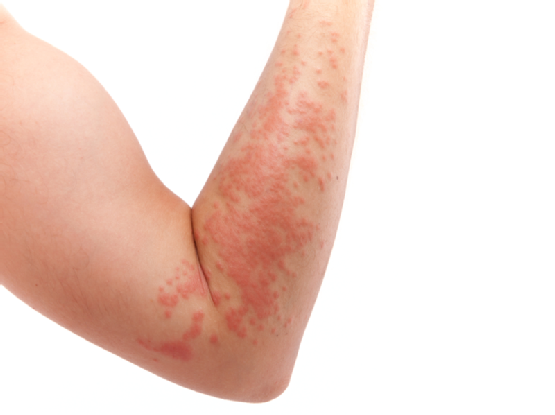Why Eating Correctly Will Give You Great Results With Psoriasis

Would you like some of the best healthy eating tips for psoriasis? Then you have come to the right place. When you have psoriasis, it is very important to adopt very good eating habits while at the same time adopt a healthy lifestyle and supplement your diet. I’ll explain a lot more about the reasons why this approach is so crucial if you want a permanent resolution from your psoriasis in the other booklets I’ve written on psoriasis.
Your psoriasis diet should include sufficient amounts of fruit and vegetables to give you plenty of fiber, along with sufficient trace elements, fatty acids, vitamins and minerals. When you have psoriasis, it is best to limit your consumption of saturated fats (animal fats) as much as possible and to eat plenty of foods rich in essential fatty acids, such as cereals, nuts, seeds and vegetable oils. Importantly, consuming too much fatty food and alcohol can overburden your liver, which will result in toxins accumulating in your bloodstream. As waste is also eliminated through the skin, it must work at full capacity when there is a large amount of toxins, increasing the likelihood of psoriasis flares.
As far back as 1932, Dr. Jay Schamberg (former professor of Dermatology from the University of Pennsylvania) demonstrated that psoriasis was clearly improved by making dietary changes. Dr. John Pagano, author of Healing Psoriasis, also noted that psoriasis patients whom he placed on his strict diet improved dramatically in as little as 6 to 8 weeks. Personally, I discovered several years ago that diet does not only play a crucial role in reducing and clearing up the symptoms of psoriasis, it is most probably THE most important factor in recurrence of psoriasis and healing it permanently. Please do NOT believe for one moment that recovery is “impossible” from psoriasis, it is not only possible, it is in fact highly probable if you stay on track with the correct dietary and lifestyle recommendations.
I have been treating patients with psoriasis for as long as I’ve been in natural medicine practice, for twenty-five years, and I can tell you this one vital piece of information when it comes to chronic skin conditions: You will NOT recover unless you are prepared to stay on track and remain committed to the dietary changes I have recommended for at least 3 to 6 months, but preferably for as long as 12 months. The other suggestions are important, such as lifestyle and supplementation, but they are ALL a complete waste of time unless you are dedicated to stay on track when it comes to the dietary recommendations.
The second thing I must tell you at the beginning is that I do not wish to mislead you, some patients simply do not recover as fast as others, and a small percentage do not recover that well at all. But these psoriasis patients do tend to make up the minority.
In other cases, some people just don’t want to recover for their own specific reasons or just “can’t be bothered” with putting in any effort, and I can sense this after seeing them a few times in my clinic, in that case if I feel they are not committed or are after that “magic pill”, I may refer them to somebody else.
The psoriasis patients I have routinely found to be the most committed are the psoriasis patients with the chronic skin lesions and extensive plaques, the people who have tried every trick in the book, been to the dermatologists, the doctors and naturopaths, have tried all the creams and extensive therapies yet who remain uncured. Cures from chronic psoriasis ARE possible, of that I have no doubt as I have seen many of them with my own two eyes, but cures from any chronic condition, particularly a chronic skin condition, require persistence and lots of patience.
One of the most important reasons for you to eat correctly when you have psoriasis, especially chronic psoriasis, is that the right diet will ensure the right bacteria in your digestive system as well as inhibit candida albicans (yeast), and in my clinical experience, those with plenty of beneficial bacteria and a negligible yeast population (of candida kept in check and balanced with good, beneficial bacteria) seem to suffer the least with psoriasis.
Therefore, it is vital that you change your diet; don’t consume foods that psoriasis thrives on. I often tell my patients to be careful, because these foods will “call your name”, they will tell you to buy them and consume them regularly and it’s called a craving, and in disguise many cravings are actually sugar cravings. “I like the taste of that” almost always means that the food you like contains sugar.
Avoiding these highly desired foods means avoiding as much as possible any refined carbohydrate foods like white flour, refined sugars such as corn syrup and glucose, fruit juices and honey and more, just look at the “Foods to Avoid” list in the Psoriasis Diet book. There are countless books and articles I have read relating to psoriasis eradication, I have tried many diets with patients but have achieved outstanding success with the 3-stage Psoriasis Diet which I have found actually works, and it works brilliantly. The thing is to use common sense, and not the latest diet-book fad. If you crave it, then just stop eating it. If is very sweet in your mouth and you know it is wrong, then stop eating it!
I have found that a psoriasis patient will often desire a particular food or beverage, and this may very well be the one underpinning the condition. Think about it for just one moment; are you a person who has a strong desire or craving for a particular food or drink? It is important to remember that a candida yeast infection generally will underpin a psoriasis condition.
And it is also important to remember that yeast hates a healthy diet full of fresh vegetables, fruits and high quality proteins devoid of refined carbs. After many years of treating psoriasis patients in my clinic, I have not been convinced that all patients need to strictly avoid all fruits with candida issues, but do request that those with chronic psoriasis of several years duration follow my eating program as outlined in The Psoriasis Diet book.
The Ten Top Tips For Eating Healthy For Psoriasis
After a huge amount of research into foods and psoriasis, I’ve found out these ten points are the most important when it comes to psoriasis and diet, after interviewing many practitioners and patients who have been successfully cured:
If you suspect or know that you have psoriasis, it is useful to take note of my dietary advice since it does not contradict the general guidelines for good healthy eating and has made an enormous difference in the lives of so many patients who unbeknown to them, were being made miserable by this condition. Just do the diet strictly from two to four weeks, then slowly include more fresh fruits, starchy vegetables and as you improve you will be able to eat a much wider assortment of foods, all in good time.
Many people who seek help eradicating their psoriasis routinely approach our clinic, and many of these patients have been following some kind of dietary protocol for a long time, in some cases for many years.
Unfortunately, if many of these patients fail to adhere very strictly to their diet and just for a day or two revert back to foods they could consume years ago, their symptoms return almost immediately. This does not prove that their diet doesn’t work; it proves that their psoriasis protocol isn’t working for them. The Psoriasis Diet is only one (yet very important) part of eradicating psoriasis, and once you have finished reading my other Psoriasis Program booklets on lifestyle and stress, you will understand what I mean by this.
It is more likely that the person who has had the most difficulty in recovering, will be the one most likely to be suffering from a condition such as adrenal fatigue. Other patients may have some other kind of “obstacle”, and eating a perfect diet certainly won’t make much of a difference in such a case, I can assure you. Just remember, you cannot eradicate your psoriasis purely by diet alone, you may subdue or tame it, but it will be ready to flare up and make your life miserable at the next opportune moment.

